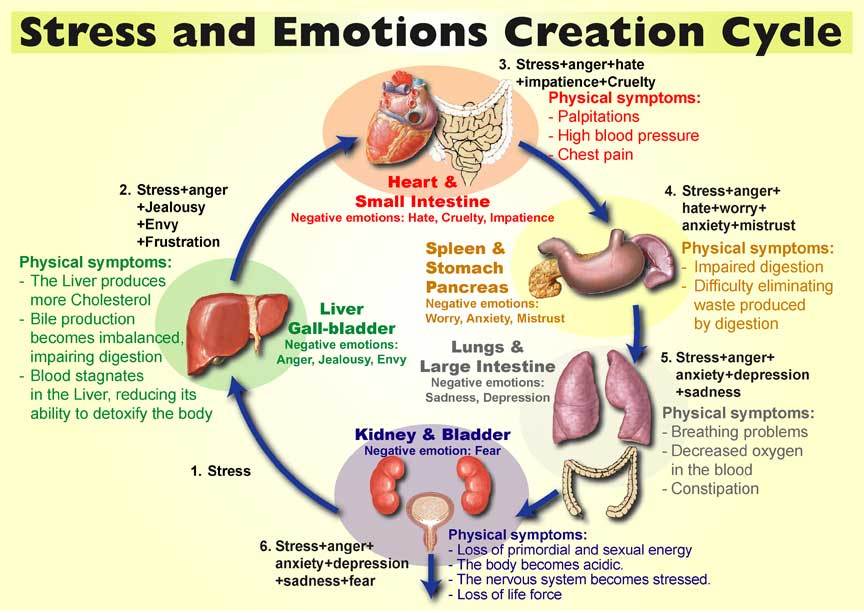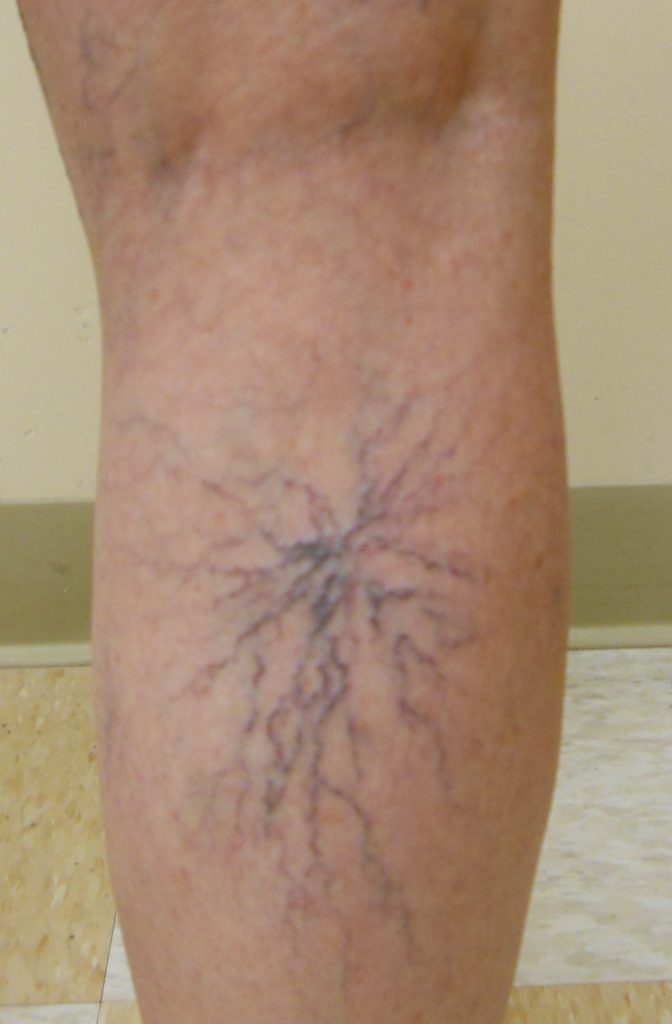
Healing Trauma, Mental-Emotional & Personality Disorders with Acupuncture
As a Westerner practicing Chinese medicine it is interesting to compare and contrast how the ancient Chinese saw mental, emotional and behavioral issues. In terms of addiction, compulsion, obsessions and other personality disorders (modern Western terms mostly), the ancient Chinese provide a rich understanding for how energy and blood-fluid blockage in the body contribute to such states. Chinese medicine is highly focused on humoral chemistry: blood, fluids, hormones and the vital energy that circulates and continually recreates them. Thousands of years of study has provided Chinese medicine with understanding for how humoral chemistry imbalance can lead to disorder of the mind, emotions and behavior.
Later historical Chinese medical research into mental-emotional health showed the impact trauma has on the psyche and behavioral patterns. Working with the blood in particular became an important method for working with mental health in general, especially psychosomatic and behavioral issues.
In general within Chinese medical thought, obsession is associated with the digestive system, especially the Stomach, Spleen and Pancreas. When obsession turns into obsessive-compulsion with a behavioral component to match the mental, the condition is seen to be afflicting the Kidneys. However, obsession that relates to a sense of insecurity, needing validation and constant clarification is associated with the Small Intestine. While obsession that is more akin the the inability to differentiate one state, feeling or situation from another is associated with the Large Intestine.
Behaviors are often associated with the bowels: the Bladder with insatiable appetite, not knowing when the body’s threshold has been met, when “enough is enough.” The Bladder can also be associated with panic disorder and nervous hyper-vigilance. The Gallbladder is associated with suicidal ideation, deep depression, hopeless and a sense of paralysis.
According to ancient Confucian thought, the root of many mental disorders is related to the thinking process. The way we feel is predicated on how we think. Emotional problems are due to “improper thinking,” say the Confucians.
The thinking process in general is associated with an aspect of the spirit called the “Yi,” which can be translated as the capacity to focus, have reflection and create intention. The “Yi” is said to be “housed” and managed by the Spleen within the body. The Spleen is seen as the root energy source of the digestive system, but also the root energy of the mind and mental faculties. When the Spleen is weak this can cause faulty digestion, give rise to “dampness” and fluid accumulation in the body, leakage of energy and fluids (often in the form of diarrhea), but it can also cause obsessive thinking and a “weak” mind (inability to focus and control oneself), even learning disabilities.
Within the Chinese medical study of behavioral and personality disorders, many disorders are seen to be rooted in a form of obsessive thinking or faulty mental processing: an aspect of imbalanced holistic digestive function.
By and large, most mental conditions that involve obsessive thinking are associated with dysfunction in the digestive system. The digestive system is not only the root of vital energy in the body, but also the source for fluids and most importantly blood.
One of the greatest Chinese medical minds of the ancient era, Wang Qing Ren, contributed a great deal to the study of blood pathology and its effect on the mind, especially blood stasis. Problems with blood chemistry can manifest through psychosomatic or psychological symptoms. Each of the 12 primary acupuncture meridians (named after the 12 primary organs) have their own relationship to the blood.
The Spleen and Stomach are the organs that create the blood, while the Heart is that which circulates it (with the help of the Lungs). The Liver (with the help of the Pericardium, a general term that covers all internal circulation of blood) “stores” the blood.
Blood is seen as the mediumship that carries the “spirit” throughout the body. The spirit, called “Shen” in Chinese medicine is “housed” in the heart and circulates via the blood throughout the body to reach every channel, organ and tissue. Blood provides nourishment on both a physical as well as spiritual level.
Blood is also seen as a resource used by the body to repress mental-emotional issues that are not being properly resolved, in a state of blood stasis. It is a mediumship for suppressing physical pathogens, injury and many other “insults” to the body, in additional to being an aspect of immune function that “expels wind” (the Chinese medical image for external challenges to the body, including virus, bacterium and fungal infections). Suppression of energy causes symptoms to emerge due to internal pressure created. The body’s nature is to circulate, release and let go continually (blood is naturally meant to both nourish as well as move in order to expel). When something remains unresolved and suppressed, the body will react. Yet, it is not always the actual pathology that is causing symptoms, but their suppression. Blood is the mediumship in the body necessary to “move,” invigorate and regulate to give expression and ultimately cathartic release to the stuck energy.
For example, a traumatic incident, be it physical or emotional such as a disappointment or violation to the self, can become trapped in a static blood state in the Kidney’s acupuncture channel to create obsessive-compulsive tendencies.
To work with the blood in each of the acupuncture channels, especially the aspect of the blood that represses issues in a state of blood stasis or stagnation is accessed by a special class of acupuncture points called “Luo.” Each acupuncture channel contains a “Luo” point. Each Luo point creates a separate vessel that separates from the main acupuncture channel, utilizing blood to translocate issues to other parts of the body where they are kept in static states.
The Stomach channel has an acupuncture “Luo” point called “the Abundant Bulge” (ST-40), located on the lower leg. When this point “fills” with stressors, it can manifest “manic” behavior. The Stomach’s “Luo” vessel pathway travels into the head and throat. It creates not only obsessive thinking, but behavior that can be volatile, impulsive and extreme. It’s a situation where the heart/emotions overwhelm the head/mind, causing the person to lack restraint or good judgement. It can even cause temporary insanity and extreme “crazy-seeming” acting out. The internal pathophysiology occurring to create this situation is labelled “phlegm-fire” in Chinese medicine. The “fire” creates the pressure, while the “phlegm” creates the insanity or confusion. It can even stir “internal wind,” which causes violent or volatile behavior. Yet the root of the problem is blood stasis due to an unresolved issue the body is suppressing.
As discussed above, the Luo points are seen as entrances to “vessels” that diverge from the main acupuncture channel, carrying material the body wishes to suppress elsewhere in the body. The term “Luo” is loosely translated as “connecting” or “collateral,” meaning they are sub pathways within the regular acupuncture meridians that translocate stressors and unresolved pathogens away from the channels and organs into holding areas within the body. They may also transfer issues from one acupuncture channel into another, due to their capacity to “connect” different channels.
The Stomach’s Luo Vessel begins on the lower leg at the point ST-40 and travels upwards (while the regular Stomach acupuncture channel travels down), into the head and throat. These are the areas where the Stomach (via its Luo vessel) translocates and suppresses material it cannot deal with. Signs the Stomach’s Luo Vessel is full can manifest visibly along the throat and head, as spider veins or swellings.
When the Luo become activated it can be due to some type of trauma: something that has attacked, challenged or insulted the body which the system finds itself unable (or unwilling) to resolve and heal. The Luo can contain lingering traumatic events that haunt a person. These suppressed issues alternate between states of relative quiet and activated expression. The Luo fluctuate between states of “fullness” (saturation) and “emptiness.” For example, the Stomach’s Luo, ST-40 manifests manic states when “full,” and weakness of the lower limbs, which can also be seen as a type of physical depression when “empty.” This is often seen in cases of manic depression where there are fluctuations between manic, volatile behavior states and depression-fatigue. The terms “full” and “empty” refer the capacity of the Luo Vessel to maintain a state of suppression. For example a person exhibiting manic behavior may not know why they are acting out because it is due to something that is being suppressed in the body. The Luo Vessel is manifesting symptoms, yet it is doing so because it has become oversaturated. If the vessel is not yet “full,” it will not manifest symptoms. However if the vessel becomes oversaturated to the point of bursting, it will “empty” itself back into the regular acupuncture channel, where there will be symptoms more related to weakness, usually less expressive and more related to the actual pathology or issue being held in the body.
For example, pathology being held in the Stomach’s Luo Vessel in a state of fullness nearing saturation manifests manic states as a way to discharge the pressure created from the stagnation. The manic behavior lets out some of the “steam” or tension so the vessel can relax. Yet if the vessel has emptied due to over saturation, weakness of the lower limbs show the person now lacks the ability to actively discharge pressure, manifesting a disempowered or depressed state which is often physical as well as mental-emotional. In the case of the Stomach’s Luo emptiness, weakness of the lower limbs is often accompanied by lack of direction in life, feeling lost and unmotivated.
To release and treat symptoms and states resulting from a “fullness” or “emptiness” of the Luo is to work with trauma creating fixation. To do so requires working on blood chemistry, especially blood stasis. Physical trauma creates bruising on the body. Mental-emotional trauma does the same, yet often on a more subtle level. Working with the Luo Vessels can treat all of this: physical as well as emotional trauma.
The study of the Luo Vessels is that of psychosomatics: the way the mind and body express together. In Chinese medicine, to work on the mind one must work with the body and vice-versa. One of the most important chapters within the acupuncture medical classic says in all conditions one must address “the spirit.” Since the spirit circulates through the blood, this becomes the most important focus for working with trauma.











No Comments